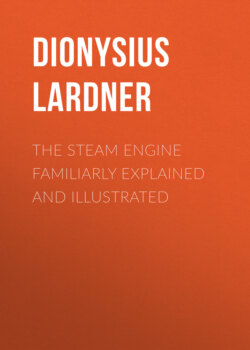Читать книгу The Steam Engine Familiarly Explained and Illustrated - Dionysius Lardner - Страница 5
На сайте Литреса книга снята с продажи.
CHAPTER II.
FIRST STEPS IN THE INVENTION.
ОглавлениеTable of Contents
Futility of early claims. — Watt, the real Inventor. — Hero of Alexandria. — Blasco Garay. — Solomon de Caus. — Giovanni Branca. — Marquis of Worcester. — Sir Samuel Morland. — Denis Papin. — Thomas Savery.
(22.) In the history of the progress of the useful arts and manufactures, there is perhaps no example of any invention the credit of which has been so keenly contested as that of the steam engine. Claims to it have been advanced by different nations, and by different individuals of the same nation. The partisans of the competitors for this honour have argued their pretensions, and pressed their claims, with a zeal which has occasionally outstripped the bounds of discretion; and the contest has not unfrequently been tinged with prejudices, both national and personal, and marked with a degree of asperity quite unworthy of so noble a cause, and altogether beneath the dignity of science.
The efficacy of the steam engine considered as a mechanical agent depends, first, on the several physical properties from which it derives its operation, and, secondly, on the various pieces of mechanism and details of mechanical arrangement by which these properties are rendered practically available. If the merit of the invention must be ascribed to the discoverer and contriver of these, then the contest will be easily decided, because it will be obvious that the prize is not due to any one individual, but must be distributed in different proportions among several. If, however, he is best entitled to the credit of the invention, who has by the powers of his mechanical genius imparted to the machine that form and those qualities from which it has received its present extensive utility, and by which it has become an agent of transcendent power, which has spread its beneficial effects throughout every part of the civilized globe, then the universal consent of mankind will, as it were by acclamation, award the prize to one individual, whose pre-eminent genius places him far above all other competitors, and from the application of whose mental energies to this machine may be dated those grand effects which have rendered it a topic of interest to every individual for whom the progress of human civilization has any attractions. Before the era marked by the discoveries of James Watt, the steam engine, which has since become an object of such universal interest, was a machine of extremely limited power, greatly inferior in importance to most other mechanical contrivances used as prime movers. But from that time it is scarcely necessary here to state that it became a subject not of British interest only, but one with which the progress of the human race became intimately mixed up.
Since, however, the question of the progressive developement of those physical principles on which the steam engine depends, and of their mechanical application, has of late years received some importance, as well from the interest which the public manifest towards them as from the rank of the writers who have investigated them, we have thought it expedient to state briefly, but we trust with candour and fairness, the successive steps which appear to have led to this invention.
The engine as it exists at present is not, strictly speaking, the exclusive invention of any one individual: it is the result of a series of discoveries and inventions which have for the last two centuries been accumulating. When we attempt to trace back its history, and to determine its first inventor, we experience the same difficulty as is felt in tracing the head of a great river: as we ascend its course, we are embarrassed by the variety of its tributary streams, and find it impossible to decide which of those channels into which it ramifies ought to be regarded as the principal stream; and it terminates at length in a number of threads of water, each in itself so insignificant as to be unworthy of being regarded as the source of the majestic object which has excited the inquiry.
From a very early period the effects of heat upon liquids, and more especially the production of steam or vapour, was regarded as a probable source of mechanical power, and numerous speculators directed their attention to it, and exerted their inventive faculties to derive from it an effective mover. It was not, however, until the commencement of the eighteenth century that any invention was produced which was practically applied, even unsuccessfully. All the attempts previous to that time were either suggestions which were limited to paper or experiments confined to models; or, if they exceeded this, they never outlived a single trial on a larger scale. Nevertheless many of these suggestions and experiments being recorded and accessible to future inquirers doubtless offered useful hints and some practical aid to those more successful investigators who subsequently contrived engines in such forms as to be practically available on a large scale for mechanical purposes. It is right and just, therefore—mere suggestions and abortive experiments though they may have been—to record them, that each inventor and discoverer may receive the just credit due to his share in this splendid mechanical invention. We shall then in the present chapter briefly enumerate, in chronological order, the successive steps so far as they have come to our knowledge.
